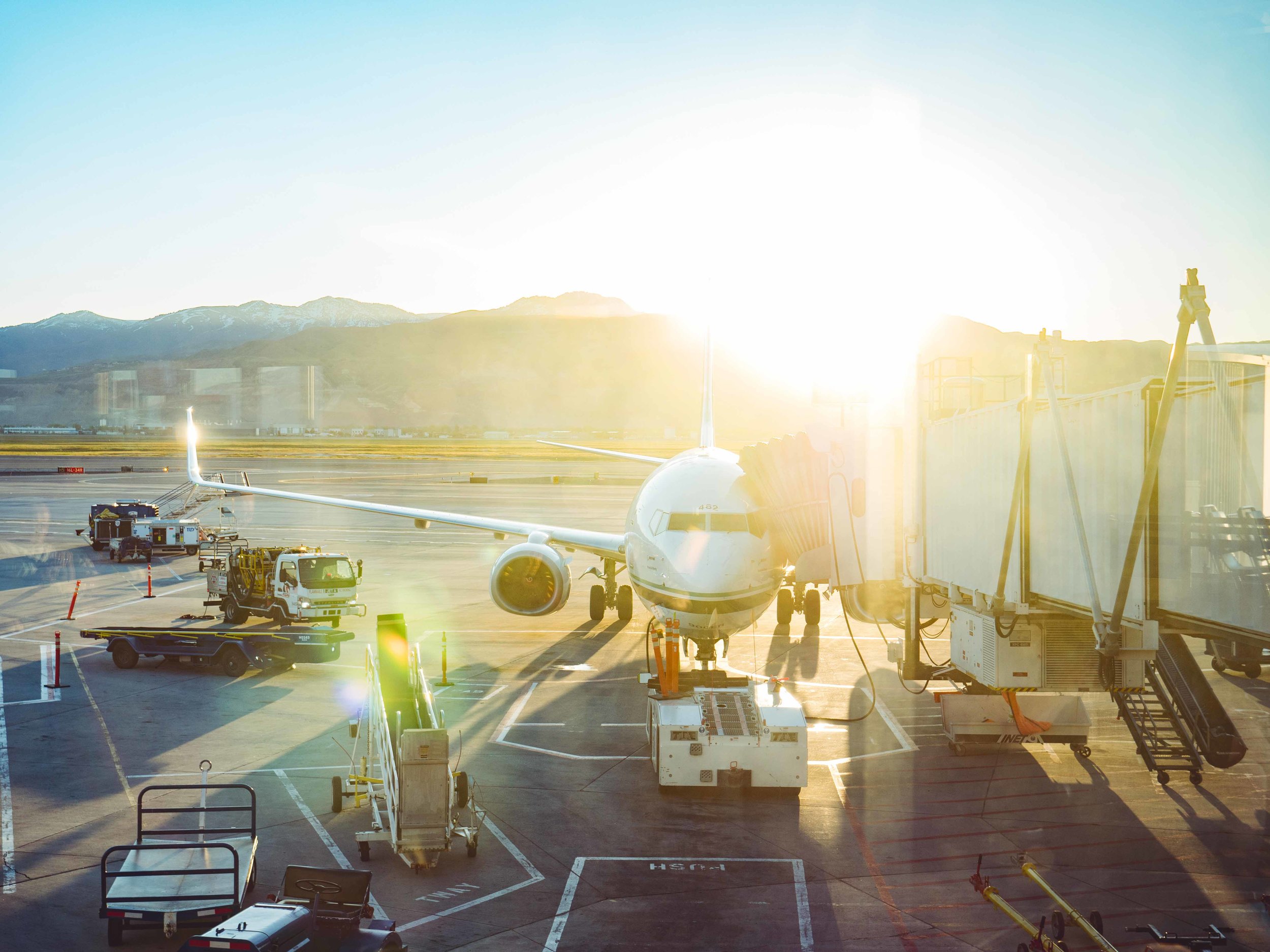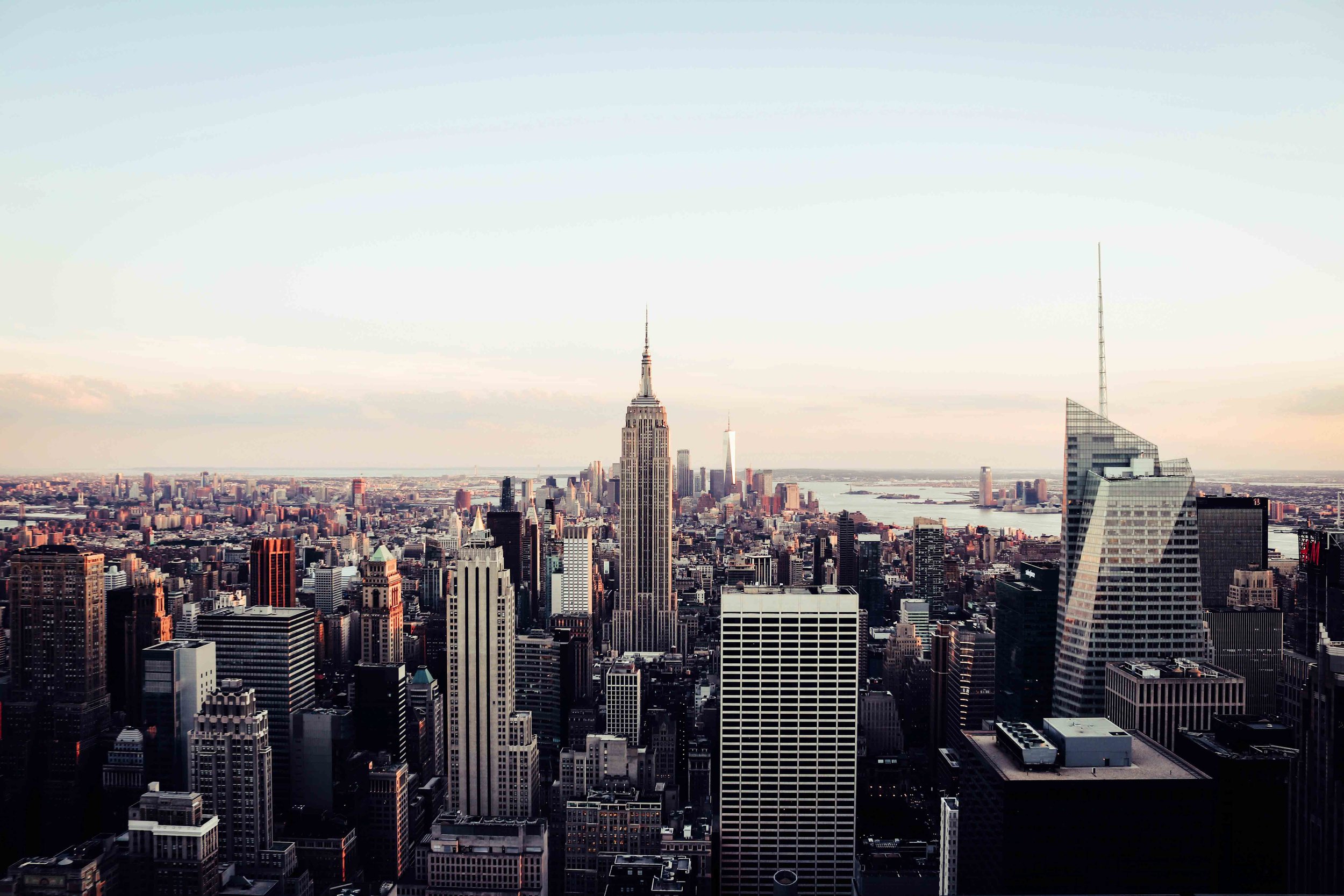When I travel via plane, I try and pack as many things into my carry-on as possible. Why pay that $50 check-in baggage fee if I can avoid it, right? Well, that may soon be ending. Some airlines like United, are planning to charge fees for using the overhead compartment.
Is it just me or does the air travel experience seem to be deteriorating?
To answer this question for myself, I did a little bit of research and found that in the 1970s, some US airlines used to have cool perks like pubs and lounges in their coach section; today First Class doesn’t even have that. I also found that the average width of an airplane seat in the 1970s was 18 inches.
Today, that's shrunk to an average of 16.5 inches.
Shrinking seats has consequences according to Proxemics, which is the study of the human use of space. It states that anyone within 1 – 4 feet can be considered within our personal space.
So if you're unfortunate enough to sit in the middle seat of an airplane, you could have up to seven complete strangers all within arms distance of you. Proxemics states that people can feel discomfort, anger, or anxiety when a stranger is inside of their personal space.
Although travel is good for your health, getting squeezed onto a plane can create a lot of tension on an aircraft. Tension that could be avoided if 'Airplane Etiquette: the Unwritten Rules of Air Travel,' was required reading.
According to the International Air Transport Association, the rate of unruly passengers is increasing. It seems like every couple of weeks, there’s an airplane horror story in the news. From fights breaking out, to passengers having to restrain a man, to someone having a temper tantrum over baggage space.
With all of this stuff happening, I gave a call to David Cogswell, executive editor at TravelPulse.com, to get a better understanding of what's happening to the airline industry.
"I think what’s happened, the industries have become so consolidated; really monopolized," according to Cogswell. "You have 4 big airlines that control 86% of all domestic traffic. They divide the market up nicely so they don’t really have to compete."
Continental Airlines Coach Lounge, circa 1970
With fewer airlines to choose from, there is less business competition. Airlines don’t need to offer perks like lounges and pubs, to convince you to fly with them instead of their competitors. The lack of competition is shrinking almost every year. In 2012 Continental Airlines merged with United, in 2015 American Airlines merged with US Airways, and last year Alaskan Airlines bought Virgin America.
“The prices are rising faster than inflation.”
This trend doesn’t have good consequences for consumers. Like at the Philadelphia International Airport, where American Airlines controls 77% of all seats booked, after they merged with US Airways. Before the merger the cost of a ticket in Philadelphia used to be 4% below the national average, now it’s 11% above the national average.
"The prices are rising faster than inflation," Cogswell says.
Although huge airline mergers have to pass through Congress to make sure they don’t violate any anti-trust laws, they are almost always approved.
"They’ve made it so that they’ve twisted these words around," according to Cogswell. "They go to Congress and use the word ‘competition’ to say, ‘well you’ve let these guys merge, so now they’re bigger than us. So if you let us merge then we’ll be more competitive.’ So they’re saying, ‘we’ll be more competitive,’ but the marketplace won’t be more competitive."
With less competition, things like customer service begin to lose priority, the size of your seat matters less, and practices like overbooking increases.
"They're overbooking to the extent of abuse. There’s a certain degree of it that makes sense in terms of yield management, so they don’t have to fly with a lot of empty seats all the time."
The overbooking issue is what caused United to infamously kick Dr. David Dao off their flight in April of this year. You can watch the video below:
Overbooking continues to be a problem for passengers flying United. Just this month they took a ticketed seat from a two-year-old and made the mother hold the baby during the flight, just so they could give the seat to someone else.
"The thing with the woman and her baby was that she was afraid. She said that she was afraid to complain," Cogswell explained. "When it finally came out, the airline said that it was a mistake. But she was afraid to bring the subject up because who knows what would have happened to her.
"It definitely feels like they have the power. It’s their company, it’s their airplane, even though you bought a ticket. You definitely don’t want to do or say the wrong thing," says Susan Shain, travel writer and blogger.
Shain has gotten really familiar with passenger rights, like what you’re owed if you get bumped from a flight due to overbooking.
"It’s pretty normal for airlines to overbook seats, to make up for no-shows," Shain says, "But when more people show up than they expect, that’s when they’re offering vouchers.
These vouchers are for discounts on future travel with the airline.
"So that’s when they’re seeking volunteers. It’s only in a case when not enough people volunteer, that’s when airlines are forced to bump people against their will. They don’t want to have to pay you so they’re going to offer you some pretty great incentives and they’re going to keep going up if they don’t have any volunteers."
Airlines are required by law to pay you in cash not vouchers, if they bump you against your will. You do qualify for different amounts of compensation depending on when you arrive to your destination.
"If you’re involuntarily bumped from a flight and you arrive within an hour of your scheduled arrival time, you’re not owed anything," says Shain, "But if you’re 1 – 2 hours late, you’re owed double the price of your ticket. If you arrive more than 2 hours late, the airline owes you quadruple the cost of your ticket, which maxes out at $1,350.
I asked Shain, "What if your flight is delayed or canceled, and you miss that Quinceañera or Bar Mitzvah? Are you owed any compensation?"
"So unfortunately there are no regulations that require an airline to do anything for you in case of a domestic delay or cancellation."
Although there are no regulations, Susan says that some airlines might still give you something for your troubles.
"If you ask nicely, some airlines might give you some form of compensation just for good customer service," she says. "You can ask for vouchers, not flight vouchers but food vouchers to eat at the airport restaurants. I’ve also asked for hotel or taxi vouchers in the past. That happens more often if the delay is due to a mechanical or a scheduling issue. I found that if it’s due to weather, they’ll say they can’t do anything."
If they can’t give you vouchers, you can always ask for something else.
"I’ve also asked for airline miles. So if I’m a frequent flyer with the airline, I’ll say, ‘hey, I love your airline, I fly with you often and I understand this happens. Would you be willing to give me some air miles for the inconvenience?’ And that’s worked too."
If the airline can’t compensate you for a delay, Susan says to check the credit card that you booked the flight with.
"One of my favorite cards, if you’re delayed more than 6 hours or you need to stay overnight, and you purchased the ticket or paid fees on that credit card, it will reimburse you up to $500 per ticket."
And if you have an issue with your checked-in bags, airlines are required to give you compensation.
"The DOT says airlines need to compensate for reasonable expenses for loss, damage, or delay. Each airline does their own interpretation of that. But most of the time you can expect a stipend of about $50 a day. And they’re also required to reimburse any baggage fees. The max is $3,500 domestically and $1,500 internationally."
So all of these travel tips are great, but what if you’re not satisfied and think you’re still being treated unfairly? Susan says she has her go-to place to get those issues resolved.
"The first places I always jump on is twitter. I found that companies are always quicker to act if you complain politely."
Susan stressed about being polite. It always helps, especially when you’re talking to an airline representative in person.
"Last year I was flying to Georgia, the country, from San Diego, and I don’t really remember why, but the flight was canceled," she says. "People were going crazy and losing their cool, and it definitely sucked but it was not the gate agents fault, and she was really nice, doing her best. So when it was my turn I was patient and I worked with her and I ended up on a flight the next day, and when I got on the plane I realized that she bumped me up to business class. I’m sure if I was rude, I wouldn’t have been in business class."
Do you have any air travel stories? We'd love to hear them. If you want more information about your passenger rights, check out the Department of Transportation's Fly Rights.
Don't forget to listen to our travel podcast episode on this topic below:
Check out our co-host Adrien’s podcast and website at: www.strangersabroadpocast.com
If you haven’t subscribed, do so on iTunes or wherever you’re getting your podcasts.




























